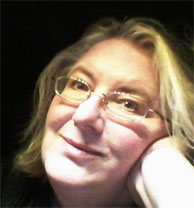I’ve been reading through The Collected Letters of C. S. Lewis, Volume lll: Narnia, Cambridge, and Joy 1950-1963 lately. The flow of his correspondence from amiable acknowledgements to his readers to business exchanges with his publishers to the relaxed exchanges with academic colleagues and friends is fascinating. (And I certainly recommend the volume to other readers.)
In the course of commenting on the quality of a colleague’s work on William Blake, the editor annotated Lewis’ letter with a quotation from An Experiment in Criticism. In part, Lewis says of the truly instructive literary criticism that he had encountered:
Find out what the writer actually wrote and what the hard words meant and what the allusions were to, and you have done far more for me than a hundred new interpretations or assessments could ever do. (An Experiment in Criticism, 1961, ch. 11, p. 121)
Now, I know I read An Experiment in Criticism first when I was an undergraduate, although I’m not sure precisely when. I know that I appreciated Lewis’ approach to scholarship. I’d also read much of Dorothy L. Sayers in that same period, and she too avoids wandering very from consideration of primary texts.
The point of these musings is that when I encountered the quotation “out of the blue” (as it were), I had a sudden flash of the period when I was working on my Master’s thesis. I was going to be writing on Beowulf, and had a general idea of where I was going. But over the course of a year and a half, I read through just about all the Beowulf scholarship that was available to me. There were many works that had various theories about the work, of course. There were many pieces that did a lot of citing and quoting of previous scholars and arguing with them.
The problem for me, however, was that very little of what anyone had to say addressed the points I wished to make. So, I went to my thesis advisor and said, “I’ve read all these scholars over the last year and a half. And none of them really go where I’m going. I don’t want to spend a lot of time quoting them and then saying, ‘But So-and-so does not take this idea far enough.’ Can I just do a straight textual criticism of the poem?” She said, “Yes.”
Looking back now, it occurs to me that Lewis’ comment and approach probably had a great deal to do with my choice to pursue a textual criticism. It was rather brash of me to throw away all the scholarly padding I could have had. But I know now that I really do agree with Lewis. Working from what an author actually wrote is far more rewarding than picking over the encrustations of other commentators.



